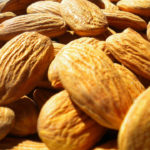
What is Cholesterol Cholesterol is a waxy, fat-like substance that’s found in all cells of the body. Your body needs cholesterol to make hormones, vitamin D, and substances that help to digest foods. Your body makes cholesterol it needs. Cholesterol doesn’t dissolve in the blood. Instead, it bonds to carriers called lipoproteins, which transport it between cells. Lipoproteins are made
Read More …
Atherosclerosis Treatment Using Home Remedies, Yoga, And Diet – Foods to be taken: Vegetables and fruits that are deeply colored (such as spinach, carrots, peaches, and berries) are highly recommended as they have the highest micronutrient content
, Choose whole-grain, high-fiber foods. These include fruits, vegetables, and legumes (beans). Good whole grain choices include whole wheat, oats/oatmeal, rye, barley, brown rice, buckwheat, bulgur, millet, and quinoa
, Choose Monounsaturated fatty acids (found in olive oil, canola oil, peanut oil, nuts, and avocados) and omega-3 polyunsaturated fatty acids (found in fish, shellfish, flaxseed, and walnuts)
,
Atherosclerosis Prevention – Avoid smoking, Alcohol control, Maintain cholesterol levels, Manage diabetes.
Atherosclerosis Symptoms – Chest pain, Shortness of breath, Muscle weakness, Confusion. Atherosclerosis Causes – Smoking, High fat and cholesterol in blood, High BP, High sugar levels.
Atherosclerosis (or arteriosclerotic vascular disease) is a condition where the arteries become narrowed and hardened due to an excessive buildup of plaque inside the arteries..

Hyperlipidemia Treatment Using Home Remedies, Yoga, And Diet – Foods to be taken: Wholegrain
, Rice
, Bread and pasta
,

Hyperlipidemia Prevention – Low fat diet, Exercise regularly, Counselling with doctor, Avoid alcohol and smoking.

Hyperlipidemia Symptoms – Chest pain, Xanthoma (irregular bump on skin). Hyperlipidemia Causes – Overweight, Unhealthy diet, Diseases, Hereditary, Alcohol and smoking.

Cholesterol is a fatty substance known as a lipid and is vital for the normal functioning of the body. It is mainly made by the liver but can also be found in some foods we eat. Having an excessively high level of lipids in your blood (hyperlipidaemia) can have an effect on your health. It is also known as hyperlipoproteinemia, hyperlipidaemia, high cholesterol.Based on pattern of lipoproteins, it is of different types like hyperlipoproteinemia Type I, II, III, IV, V.
Quick Figures 6.5 crore people in India are diabetic. Another 7.5 crore are in pre-diabetic stage. By 2030, as per WHO, Diabetes Mellitus will be among top 10 leading causes of death. To create awareness globally World Diabetes Day is observed by International Diabetes Federation and WHO on 14th November. 90% of cases are non-insulin dependent (type 2), typically affecting
Read More …
 What is Cholesterol Cholesterol is a waxy, fat-like substance that’s found in all cells of the body. Your body needs cholesterol to make hormones, vitamin D, and substances that help to digest foods. Your body makes cholesterol it needs. Cholesterol doesn’t dissolve in the blood. Instead, it bonds to carriers called lipoproteins, which transport it between cells. Lipoproteins are made Read More …
What is Cholesterol Cholesterol is a waxy, fat-like substance that’s found in all cells of the body. Your body needs cholesterol to make hormones, vitamin D, and substances that help to digest foods. Your body makes cholesterol it needs. Cholesterol doesn’t dissolve in the blood. Instead, it bonds to carriers called lipoproteins, which transport it between cells. Lipoproteins are made Read More …
 What is Cholesterol Cholesterol is a waxy, fat-like substance that’s found in all cells of the body. Your body needs cholesterol to make hormones, vitamin D, and substances that help to digest foods. Your body makes cholesterol it needs. Cholesterol doesn’t dissolve in the blood. Instead, it bonds to carriers called lipoproteins, which transport it between cells. Lipoproteins are made Read More …
What is Cholesterol Cholesterol is a waxy, fat-like substance that’s found in all cells of the body. Your body needs cholesterol to make hormones, vitamin D, and substances that help to digest foods. Your body makes cholesterol it needs. Cholesterol doesn’t dissolve in the blood. Instead, it bonds to carriers called lipoproteins, which transport it between cells. Lipoproteins are made Read More …